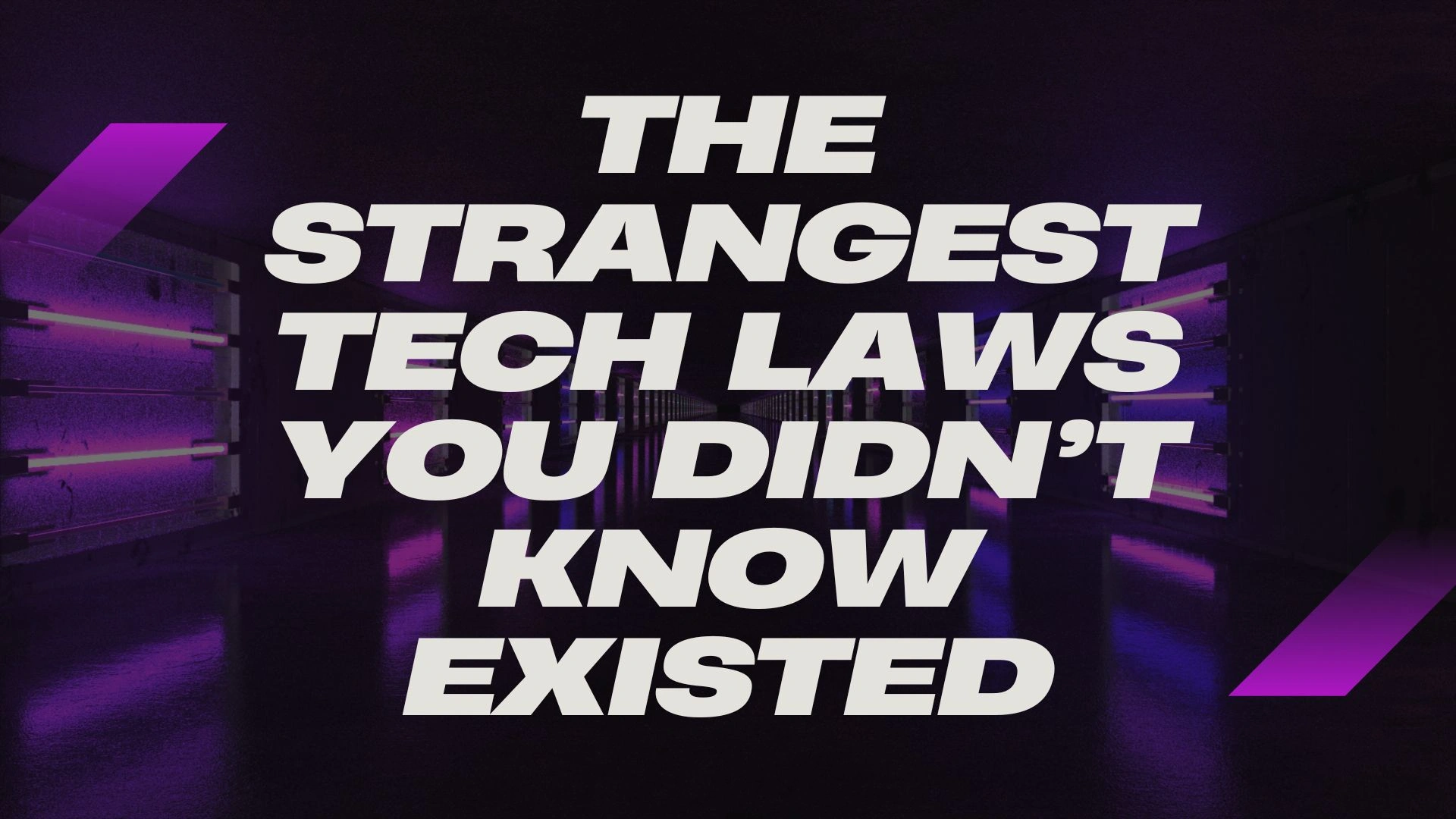Introduction
The Strangest Tech Laws You Didn’t Know Existed
Technology is advancing faster than ever, but laws don’t always keep up. Sometimes, governments pass regulations that seem downright bizarre. From banning certain emojis to making it illegal to share your Netflix password, tech laws around the world can be surprising, confusing, and even hilarious.
Let’s explore some of the strangest tech laws you probably didn’t know existed!
1. Sharing Your Netflix Password? Illegal in Some Places!
Streaming services have cracked down on password sharing, but did you know it’s actually illegal in some areas? In the U.S., sharing your Netflix or Hulu password could technically be a violation of the Computer Fraud and Abuse Act (CFAA). While enforcement is rare, the law is still in place.
2. You Can’t Name Your Wi-Fi Whatever You Want
Think you can set your Wi-Fi name to something funny? Not everywhere! In some countries, Wi-Fi names that contain offensive words, political statements, or misleading terms (like “FBI Surveillance Van”) could get you fined or even arrested.
3. No Emojis in Court Cases (Or Else!)
Some courts worldwide have ruled that emojis can be used as evidence in trials. However, in France and Canada, there are restrictions on using emojis in official legal documents or testimony, as they can be misinterpreted.
4. Cybersecurity Laws That Criminalize Ethical Hacking
Many countries have strict anti-hacking laws, but some of these laws unintentionally punish ethical hackers who try to expose vulnerabilities for good. In the UK, the Computer Misuse Act has led to prosecutions of cybersecurity researchers simply for discovering flaws in software.
5. Banned: Selling Video Games After Certain Hours
South Korea’s infamous “Cinderella Law” prevents minors from playing video games between midnight and 6 AM. This law was designed to combat gaming addiction but has faced criticism for being too strict.
6. No GPS Without Government Approval (India & China)
In some countries, high-precision GPS devices are restricted. For example, India and China require special government permission to import or use certain GPS equipment, mainly for national security reasons.
7. Germany’s Strict Cookie Consent Laws
While most countries require websites to disclose cookie usage, Germany’s privacy laws go a step further. Websites must get explicit user consent before tracking any data, and violations can lead to hefty fines.
8. Illegal to Own an Unregistered Drone in Japan
In Japan, owning a drone without registering it is against the law. There are also strict flying restrictions, including bans over crowded areas and near government buildings.
9. Certain Memes Are Illegal (Russia & China)
Some countries take internet censorship to the extreme by banning memes that mock public figures. In Russia, unauthorized use of someone’s face in a meme can be considered defamation, leading to legal trouble.
10. No Public Wi-Fi Without Government Approval (UAE, China)
In countries like the UAE and China, public Wi-Fi hotspots must be approved by the government, and using unapproved networks could lead to fines or other legal action.
Conclusion
Tech laws can be confusing, strange, and sometimes even amusing. While some make sense for security or privacy, others seem outdated or unnecessarily strict. As technology evolves, laws will continue to change—but hopefully in ways that make more sense!
FAQs
- Can I really get in trouble for sharing my Netflix password?
- Yes, in some places, it technically violates laws on unauthorized access to digital services.
- Why do some countries ban certain memes?
- Mainly for political reasons, as some governments see memes as a threat to public figures.
- Is hacking always illegal?
- Not necessarily. Ethical hacking is legal with proper authorization, but vague laws sometimes criminalize security research.
- Why do Wi-Fi names matter legally?
- Some governments monitor network names to prevent misinformation, offensive content, or security risks.
- What happens if I break a weird tech law by accident?
- Most unusual tech laws are rarely enforced, but it’s always best to stay informed to avoid potential fines or penalties.
Did any of these laws surprise you? Technology is always changing, and so are the rules that govern it!
strange tech laws, weird technology regulations, bizarre tech rules, unusual internet laws, strange cybersecurity laws, odd digital restrictions, tech legal curiosities, weird internet rules, bizarre digital regulations, tech legal facts, unusual cybersecurity laws




